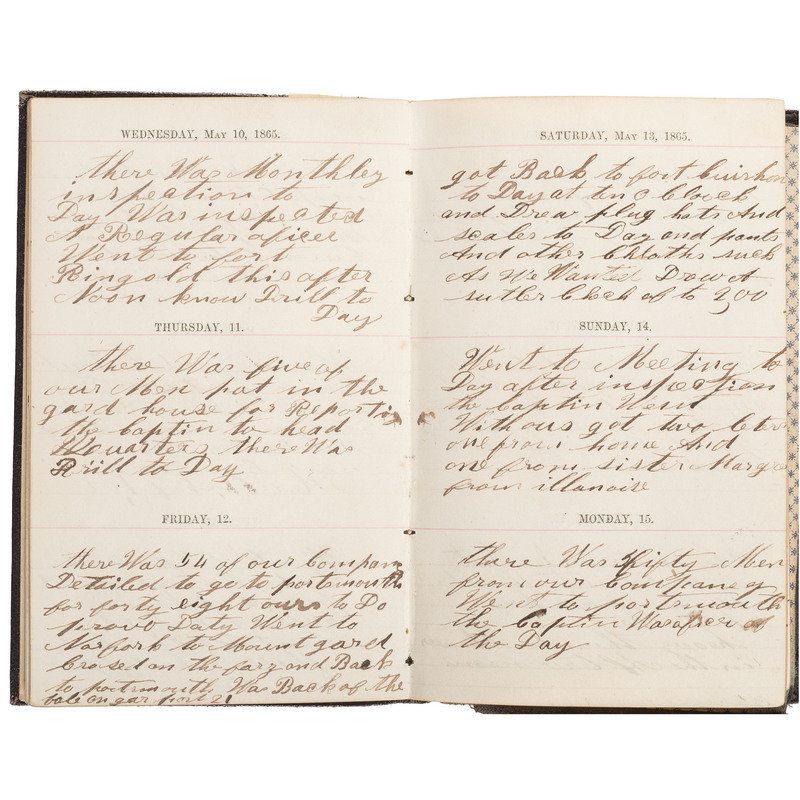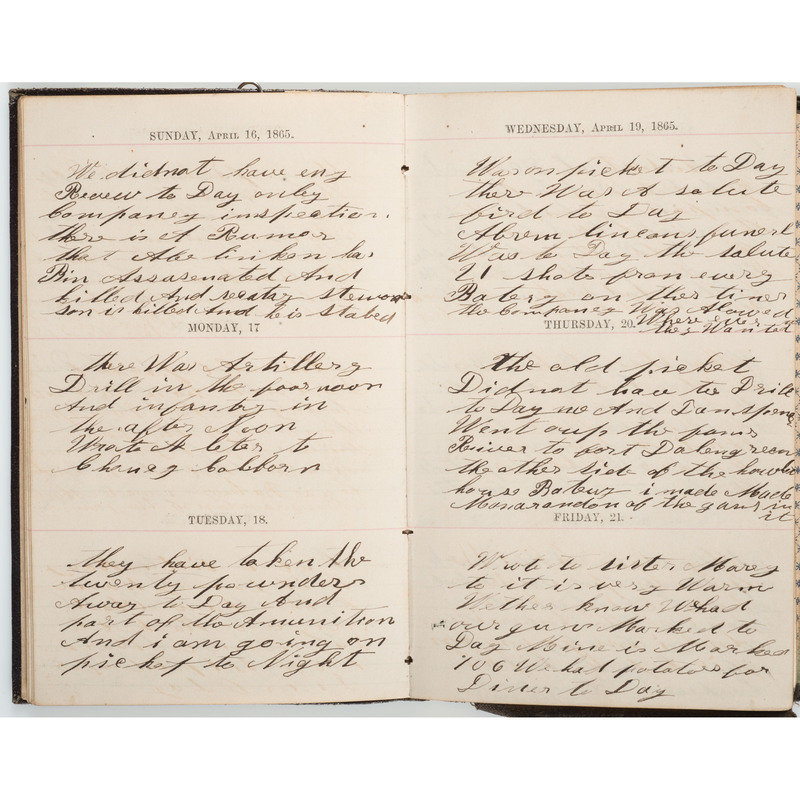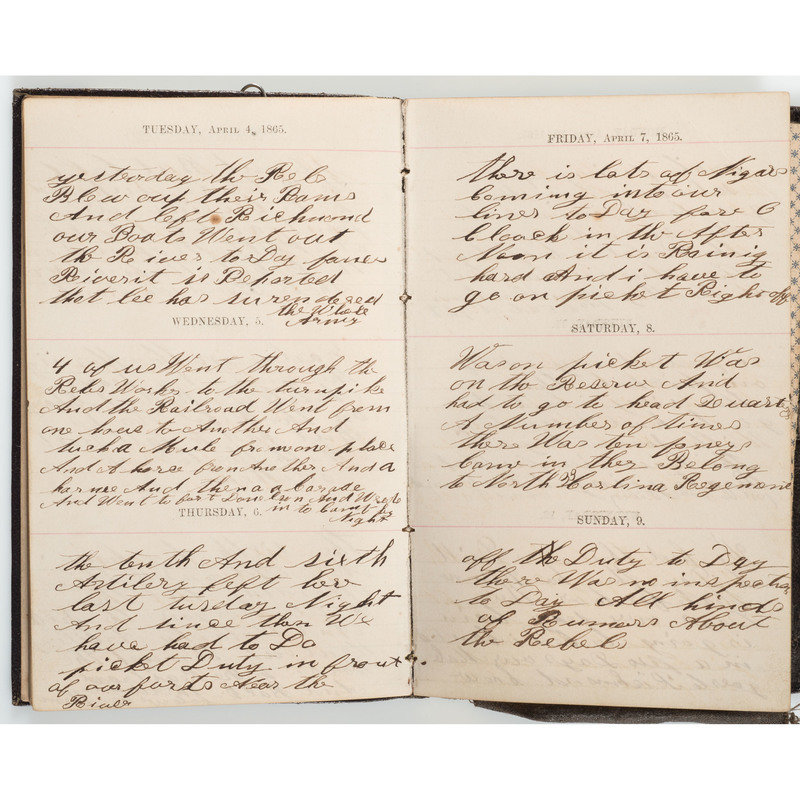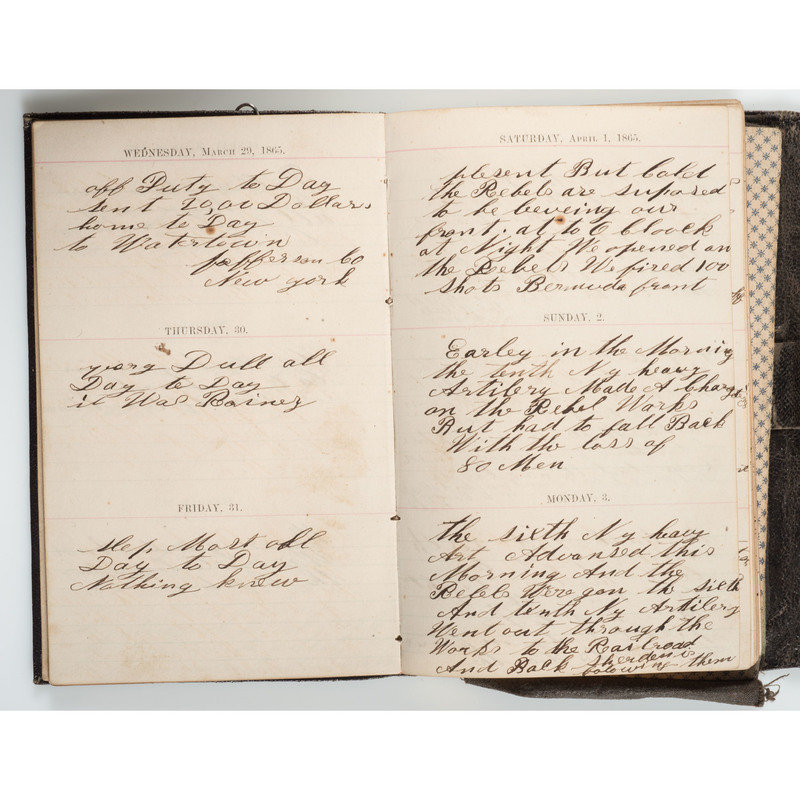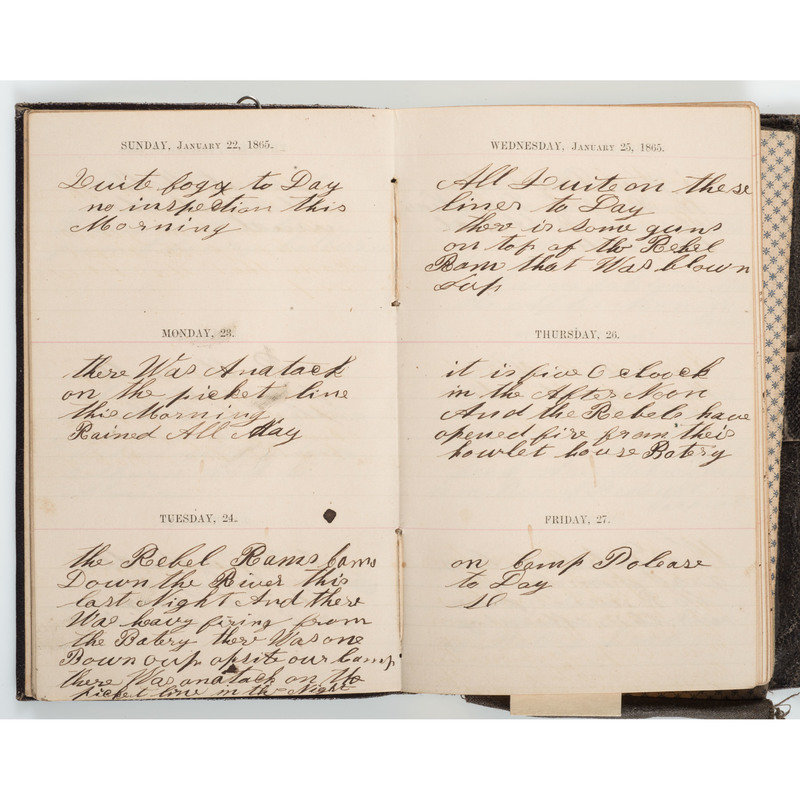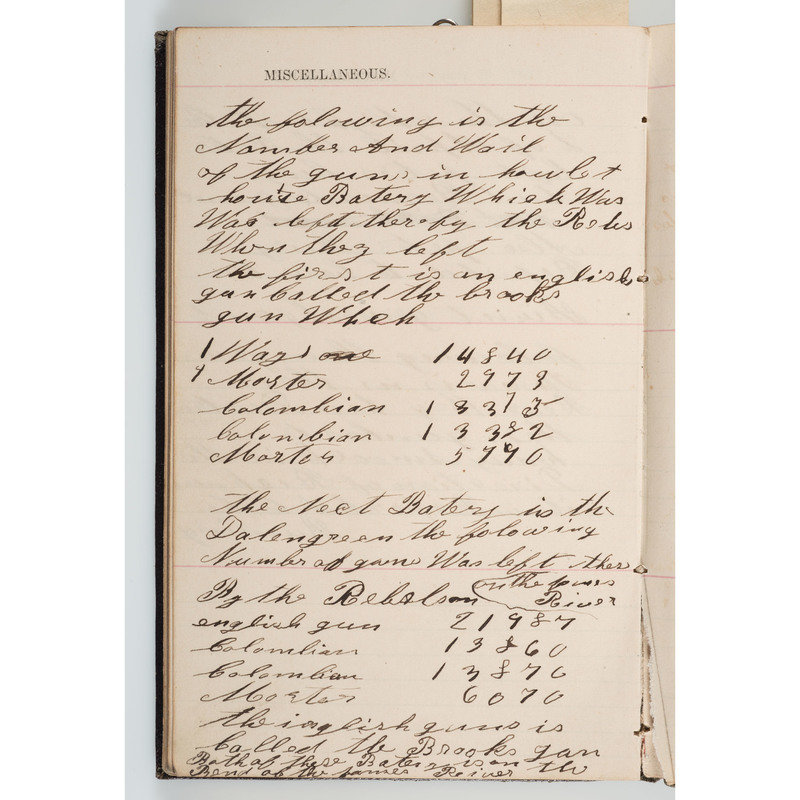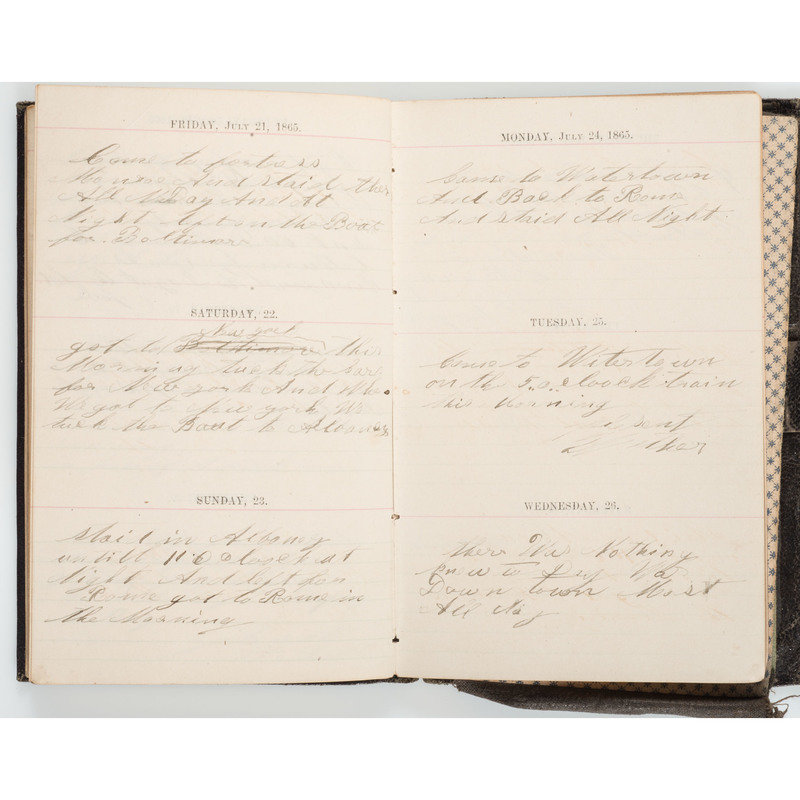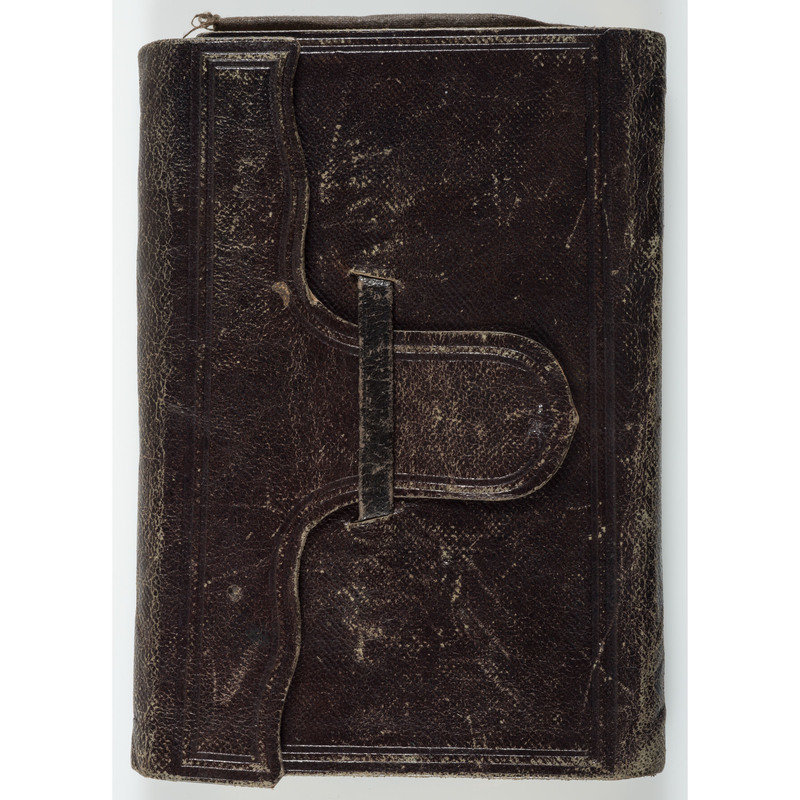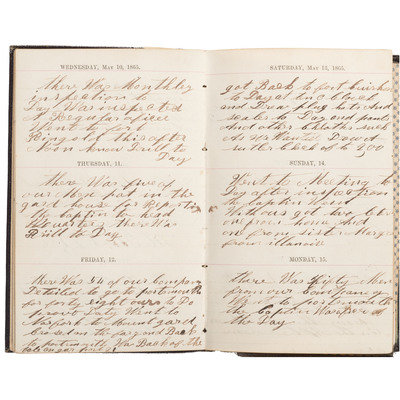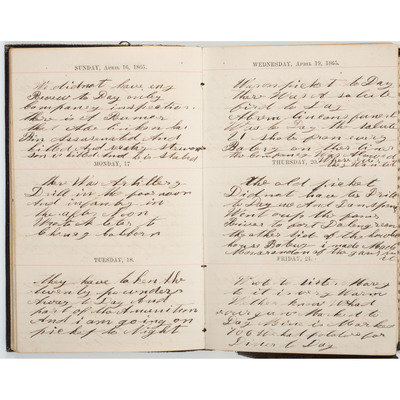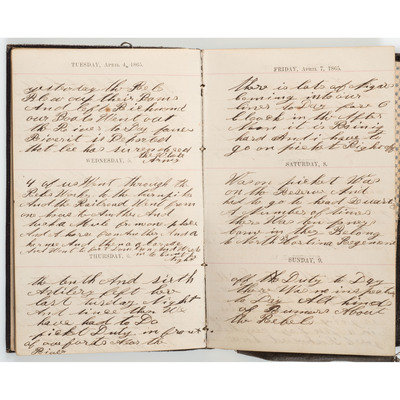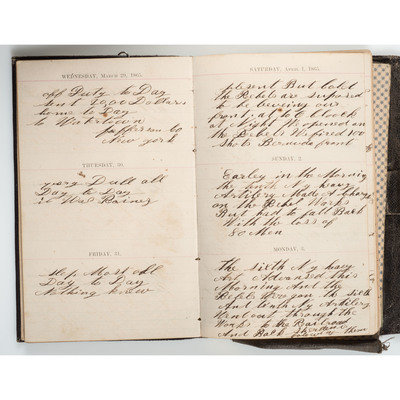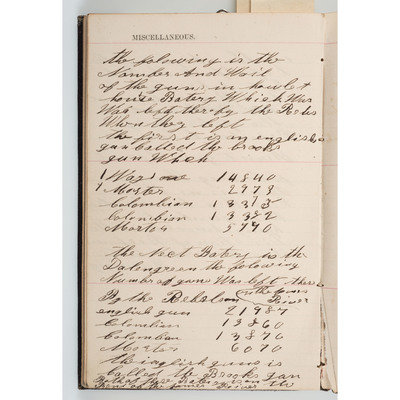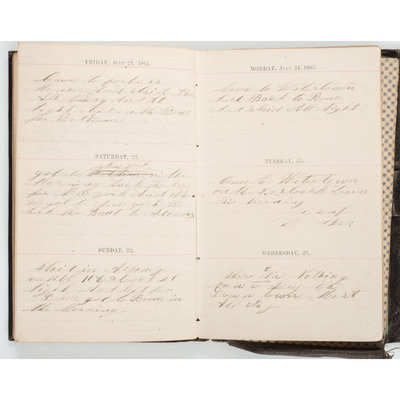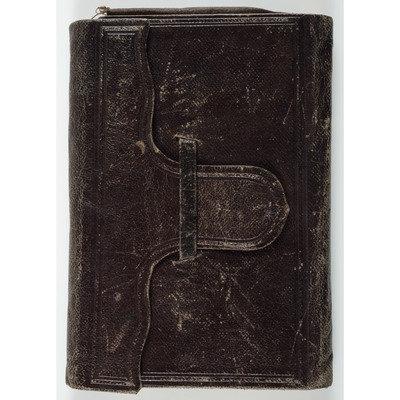Condition Report
Contact Information
Lot 86
Lot Description
Leather pocket diary, 3.75 x 6 in., with flap closure, identified to Thomas Mains, who has written entires through late July 1865 when his unit was mustered out. The consignor identifies Thomas Mains as being from Watertown, Jefferson Co., NY, but he does not show up within these parameters in either New York in the Civil War or HDS. However, research has uncovered a Thomas Maines from Champion, NY, who fought with the 13th NY Heavy Artillery and seems to have been in the same places as the individual represented in the diary.
The year 1865 started out with some nasty business: January 3: “there were to men shot in front of Batery three one for Deserting and the other for Aiding him one was a private and Sargent snowed in the after noon.”
January 24: “The Rebel Rams came down the river this last night and there was heavy firing from the Batery there was one blown up opsite our camp there was anatack on the picket line in the night.”
January 25: “All Quite on these lines to day there is some guns on top of the Rebel Ram that was blown oup[up].”
January 26:“...it is five O clock in the After Noon and the Rebels have opened fire from their howlet house Batery.”
"Was on gard to Day To Day Was orderly for the Captain Went to Deep Botom to generl Abot head Quarters Across the Apamatox River.” [Likely Joseph C. Abbott who led a successful campaign on Fort Fisher, NC.]
On the 16th, 17th and 18th he mentions a number of deserters coming in. Generally a “hurry up and wait” pattern – days of nothing, then a flurry of activity.
April 1: “…the Rebels are supposed to be leveing our front. At to (2) O clock at Night We opened on the Rebels We fired 100 shots Bermuda front”
April 2: “Earley in the Morning the tenth Ny heavy Artilery made a Charge on the Rebel Works But had to fall Back with the loss of 80 men.”
April 3: “the sixth Ny heavy Art. Advansed this Morning and the Rebels Were gon the sixth and tenth Ny Artilery went out through the Works to the Railroad and Back. Sherden is following them.”
April 4: “yesterday the Rebs Blew up their Rams and left Richmond our Boats Went out the River; to Day James River it is Reported that lee has surrendered the Whole Army.”
April 5: "4 of us Went through the Rebs Works to the turnpike and the Railroad Went from one hous to another and tuck (took?) a Mule from one place and a horse from another and a harness and then a carage and went to fort Donelson and wrode in to Camp by night.”
April 6: “The tenth and sixth Artilery left here last Tuesday Night and since then we have had to do picket duty in front of our forts near the River.”
Over the next few days a number of blacks and rebels came into their lines. April 9: “…all kinds of Rumors About the Rebels.”
April 10: “great firing of salutes from the gunboats in onor of the surrender of the Rebels help to get the Amunition out of the magazine went on picket at night.”
The following week more rumors (unfortunately partly true): April 16: “We did not have eny revew to day only Company inspection. There is a rumor that Abe Linkon has bin assasenated and killed and sectary stewards son is killed and he is stabed.” A few days later they fired the battery guns for Lincoln's funeral.
The remaining entries discuss the general pattern of breaking up the camps. Guns and ammo are taken away, Generals' things are packed up. For the 4th of July, the soldiers go to Norfolk to celebrate. Part of their post-war duties involved guarding prisoners. On June 10th, one of the prisoners drank so much whiskey that it killed him.
The regiment headed back to New York by July 20th or so, having been mustered out on the 18th.
This lot is located in Cincinnati.
